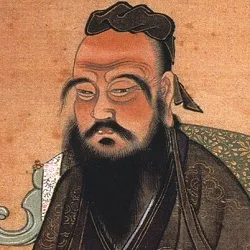- RESEARCHDistance Learning at AIU is enhanced by vast academic resources and innovative technologies build into the Virtual Campus: Hundreds of self-paced courses with video lectures and step by step lessons, thousands of optional assignments, 140,000 e-books, the Social Media & Networking platform allowing collaboration/chat/communications between students, and MYAIU develop students holistically in 11 areas beyond just academics.
- PROGRAMS OFFERED
- Areas of Study
- Courses and Curriculum
- Open Courses
- Register for a Program
- Associate Program
- Associate in Addiction Counseling
- Associate in Agriculture Food And Resources
- Associate in Anti Terrorism Security
- Associate in Behavior Analysis In Special Education
- Associate in Bioethics
- Associate in Climatology
- Associate in Cultural Theological Communication
- Associate in Culinary Arts
- Associate in Ecotechnology
- View all Associates Programs
- Bachelor Program
- Bachelors in Community Development
- Bachelors in Environmental Science
- Bachelor in Education (B.Ed, BS)
- Bachelors in Economics
- Bachelors in Entrepreneurship
- Bachelors in Financial Administration
- Bachelors in Human Resource Management
- Bachelors in Linguistics
- Bachelors in Nutritional Science
- Bachelors in Occupational Health and Safety
- Bachelors in Psychology
- View all Bachelor Programs
- Doctorate Program
- Doctor | of Biology (PhD)
- Doctorate in Business Administration (DBA, PhD)
- Doctor of Economics (PhD)
- Doctor of Electrical Engineering (D.Sc, PhD)
- Doctor of Finance (PhD)
- Doctorate in International Relations
- Doctorate in Information Technology (D.Sc)
- Doctor of Legal Studies (PhD)
- Doctor of Project Management (PhD)
- Doctor of Sociology (PhD, D.Sc)
- Doctorate in Sustainable Natural Resources Management
- View all Doctorate Programs
- Master Program
- Postdoctoral Program
- Postdoctoral in Animal Science
- Postdoctoral in Anti Terrorism Security
- Postdoctoral in Behavior Analysis In Special Education
- Postdoctoral in Bioethics
- Postdoctoral in Blockchain Technology and Digital Currency
- Postdoctoral in Business Management
- Postdoctoral in Cloud Computing
- Postdoctoral in Computer Engineering
- View all Postdoctoral Programs
AIU offers a wide range of majors in areas including the Arts, Business, Science, Technology, Social, and Human studies. More than 120 degrees and programs are available for adult learners at the associate’s, bachelor’s, master’s, doctoral and postdoctoral level. - VIRTUAL CAMPUS
Distance Learning at AIU is enhanced by vast academic resources and innovative technologies build into the Virtual Campus: Hundreds of self-paced courses with video lectures and step by step lessons, thousands of optional assignments, 140,000 e-books, the Social Media & Networking platform allowing collaboration/chat/communications between students, and MYAIU develop students holistically in 11 areas beyond just academics.
- ALUMNI
The world is YOUR campus!”, that is the message of AIU’s month magazine Campus Mundi. Hear the voices and see the faces that make up AIU. Campus Mundi brings the world of AIU to you every months with inspirational stories, news and achievements by AIU members from around the world (students and staff are located in over 200 countries).
Why All Traditional Climate Solutions Failed in the South of the US; a Call for Environmental Justice

When issues of racism, public health, and environmental degradation collide like at Grady Hospital in Atlanta, what ought local governments and community residents be responsible for fixing their interlocked problems?
Seeing cases like Brunswick and Sweet Auburn, what proposals could you think of making in order to prevent the displacement of long standing residents from neighborhood development projects that also call for environmental restoration?
In what ways do traditional climate solutions fail to address the unique challenges faced by marginalized communities in the American South, and how can environmental justice initiatives like PSE’s provide a more inclusive path forward?
(Login to your student section to access the AIU Additional Resources Library.)
Why All Traditional Climate Solutions Failed in the South of the US; a Call for Environmental Justice
In Brunswick, Georgia, the predominant Black community lived under conditions of industrial production and hazardous waste. For decades traditional environmental advocacy has failed to result in significant improvements. Brunswick is not an isolated case. It is but one of many cases in the American South where traditional climate solutions have never worked. Traditional climate strategies, invariably, do not consider the complex reality of environmental degradation, poverty and racism. To genuinely confront climate change in southern states we need to shift our focus toward environmental justice–a perspective that takes into account not only the human experience of marginalized communities, but also gives those neglected communities the power to lead change.

Environmental Injustice: An unbroken Continuum of Past Wrongs
The American South is filled with examples of environmental racism. For example, in Cancer Alley which stretches from Baton Rouge to the New Orleans area of Louisiana, the petrochemical plants and refineries produce a cancer risk hazard seven times higher than the national average. St. John Parish, which is overwhelmingly Black, has the highest cancer risk from industrial air pollution in our nation.
In Alabama’s Black Belt, where only about one ten-thousandth of the United States lives and yet more than one tenth–12% –of those without piped water represent this minority population roughly 0.2%. Such statistics are not merely environmental in nature, they contain deep human costs. Whatever the economic market for pollution may make of it, the victims’ consequently higher incidence of strokes and breathing complaints and even maternal and child deaths are not in question.
Although traditional climate solutions often emphasize inventing new technology or reducing emissions levels, these methods do not answer why blacks have been forced to accept damage from polluters for so long. The fundamental causes of environmental problems in communities of color–land-use decisions, disinvestment, bad infrastructure and institutional racism–transform pollution into heavier health care bills costing victims their lives.
Racism and the Hidden Health THREAT
Nathaniel Smith, founder and Chief Equity Officer of Atlanta’s Partnership for Southern Equity (PSE), says that racism is not just another social determinant but rather “the” social determinant of health. For years, in Black communities and the poorer neighborhoods which inhabit nearly half of our population, systematic racial exclusion has so affected policy and planning that it literally determines who gets clean air or clean water–who even has a chance to live past middle age.
Turning point
In contrast, PSE has taken another tack. Instead of handing down top-down policy edicts, the organization collaborates directly with affected communities to identify priorities; it collects its own scientific data and supplies local organizers with tools for advocating change rooted in the lives of people living there. Their strategic approach connects environmental justice directly with health equity and generational wealth now being accrued by private interests from all corners.
The Battle for Brunswick
There are 14 sites listed on Georgia’s Hazardous Sites Inventory located in Brunswick, four of which are Superfund sites. Last November, a chemical fire at the Pinova plant sent toxic plumes over residential neighborhoods, forcing residents to remain indoors. The community had long suffered from pollution problems but it was not until PSE teamed up with Emory University’s Rollins School of Public Health that anyone knew what health impacts these might have been in practice.
Researchers took blood samples from 100 residents of Brunswick last year. The results showed alarming levels of several different carcinogens, with the heaviest risks among Black residents and elderly people as well as those who have some connection either by occupancy or employment to factory sites. The presence of the compound Aroclor 1268, which has been specifically linked in scientific literature to Brunswick’s legacy industrial pollution history, provided unassailable physical evidence.
Community voices, such as that of local doula Wendy Brown, have been instrumental in advocating for accountability. Brown’s son once played soccer beside a Superfund site and was exposed unknowingly to toxic substances. Her work emphasizes Georgia’s low maternal health standings with infant mortality in Brunswick substantially higher than the overall numbers around the state.
The project is making fears that were only voices from a speaker unanswerable statistical facts. PSE plans to expand collation with its partners to 500 people, carrying on the light of environmental injustice atrocity and providing communities with evidence they can present for change.
Beyond the Data: Empowering Advocacy and Action
Data collection is just the beginning. PSE helps communities understand and use that data to insist on policy change, environmental remediation, and healthcare resources. In Brunswick, local organizations such as Coastal Community Health and the Environmental Justice Advisory Board are now working with PSE to train healthcare professionals how recognize pollution-related symptoms, and support residents in solving environmental crimes.This comprehensive approach that integrates science, policy, and local leadership ensures that solutions are attuned to the needs and aspirations of those most affected. It is not just about fixing environmental problems; it is about caring for communities and fostering resilience.
Restoring Black Excellence: The Sweet Auburn Project
Injustice in environmental areas is not limited to pollution. It also includes infrastructure choices that rend communities apart. Nowhere was this more evident than in Atlanta’s Sweet Auburn district. Once cited as “the richest Negro street in America,” Sweet Auburn was a dynamic core for black-owned businesses and culture. But in the 1960s, construction of Interstate 75/85’s “downtown connector” split the neighborhood in two – forcing 30,000 people out of their homes, displacing an estimated 30,000 residents and crippling local business.PSE has helped create the Reconnecting Sweet Auburn Project. This initiative partners with architecture and planning firms, and is funded by local development groups. It seeks to document the long-term impacts of highway construction and devise strategies that will help people socially reconnect with their community once again physically, economically.
In 2024, the project applied for an $800,000 Reconnecting Communities Pilot Grant. Plans include redesigning streets, bridges, and ramps to create safer, more livable spaces while preserving the community’s heritage. Crucially, PSE is committed to ensuring that revitalization does not result in gentrification and displacement but rather raises up those who already live in the area.

A Spoon Proven Model for Policy Change
PSE is influential far beyond single communities. And its propulsive power in Atlanta led to an important change in transportation policy.Recognizing that 90% of job centers lie north of Interstate 20 residents—while many disparate communities live to the south—PSE launched “The Power of the Penny” campaign. This initiative successfully sought a one-cent sales tax to expand MARTA, the public transit system in the city.
The initiative, which secured over 70% voter approval, caused $13 million to be collected. That carried people forward in reducing vehicle dependency as well as emissions. It’s a great example of how environmental justice and also economic mobility can go hand-in-hand.
Scaling Impact Across the South
With support from the Skoll Foundation and others, PSE has helped over 100 organizations in the South secure $60 million under the Biden Administration’sJustice 40 initiative, which directs 40% of certain federal investments to disadvantaged communities. Their tools for identifying where justice might not exist and ground-up organizing offer guidance on how to transfer their methodology into other areas.
For Smith, equity is “action for love.” In his view and that of PSE, real environmental justice must include healing, reconciliation, and a commitment to where the most affected people are those with a voice at table being women.
Conclusion: Toward a Just and Sustainable Future
In places like the South, traditional solutions for climate change are still inevitably failing because they do not even think of people on the front line. As places like Brunswick and Sweet Auburn demonstrate, systemic racism, under-investment, and environmental neglect are not replaceable by the purchase of carbon credits or new cabinets. They demand a new perspective embodying justice–which involves listening to, growing out from, and working in partnerships with the community.
Using PSE’s method can offer a blueprint for this new way of doing business. Combining data with community empowerment and policy change they are altering the landscape of environmental advocacy. Their model shows that if communities go forward, the results are not only more practical–they are also more fair, sustainable, and lasting.
It’s time people in America listen to people from the South–not to impose our own solutions but stand by those who have been fighting for justice all along.
Absolutely, it’s clear that real change requires inclusive, community-driven approaches. At Atlantic International University (AIU), we believe in empowering voices from all backgrounds to shape sustainable solutions. Join us in redefining education and advocacy for a more just and equitable future. Explore AIU’s innovative programs and discover how you can be part of a global community committed to meaningful change. Together, let’s build a world where every voice matters. Join AIU today and make a difference.

The Growing Threats of Environment Pollution
Individual Course : Environmental Justice
References
Why are Traditional Climate Solutions Falling Short in America?
Reminder to our Dear Students,
Please ensure you are logged in as a student on the AIU platform and logged into the AIU Online
Library before accessing course links. This step is crucial for uninterrupted access to your learning
resources.
AIU Success Stories







Contact Us Today!
Begin Your Journey!
AIU’s Summer of Innovation and Growth gives you the ability to earn up to $5000 in tuition credit by completing free lessons and courses.
Whether you’re looking to acquire new skills, advance your career, or simply explore new interests, AIU is your gateway to a world of opportunities. With free access to 3400 lessons and hundreds of courses the ability to earn credits and earn certificates there’s no better time to start learning.
Join us today as a Guest Student and take the first step towards a brighter, more empowered future.
Explore. Learn. Achieve.

Contact Us
Atlantic International University
900 Fort Street Mall 905 Honolulu, HI 96813 [email protected]
Quick Links
Home | Online Courses | Available Courses | Virtual Campus | Career Center | Available Positions | Ask Career Coach | The Job Interview | Resume Writing | Accreditation | Areas of Study | Bachelor Degree Programs | Masters Degree Programs | Doctoral Degree Programs | Course & Curriculum | Human Rights | Online Library | Representations | Student Publication | Sponsors | General Information | Mission & Vision | School of Business and Economics | School of Science and Engineering | School of Social and Human Studies | Media Center | Admission Requirements | Apply Online | Tuition | Faculty & Staff | Distance Learning Overview | Student Testimonials | AIU Blogs | Register for Program | Privacy Policy | FAQ



















